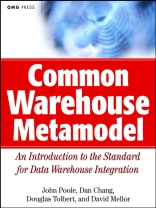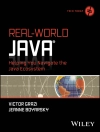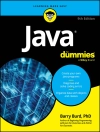The official guide to programming with the revolutionarydata-sharing technology
The Common Warehouse Metamodel (CWM) is the new OMG standard thatmakes the sharing of data seamless. The CWM standard developmentteam provides developers with a complete overview of what CWM isand how it works. After acquainting readers with the CWMarchitecture and how each CWM component fits into existing databaseand data warehouse architectures, the authors provide expertguidance on how to plan for, implement, and deploy CWMtechnologies.
Companion Web site features updates on CWM technologies, descriptions of tools, and links to vendor sites.
Mục lục
Endorsements.
OMG Press Advisory Board.
OMG Press Books in Print.
About the OMG.
Foreword.
Chapter 1. Introduction to the Common Warehouse Metamodel.
The CWM Solution.
Mission of This Book.
How This Book Is Organized.
Who Should Read This Book.
What’s on the Web Site.
A Brief History of CWM.
Chapter 2. The Value Proposition for CWM.
Analysis of the Problem Domain: The Information Supply Chain.
Integrating the Information Supply Chain.
Introducing the Model-Driven Solution Approach.
A Model-Based Approach to Meta Data.
A Complete Model-Based Meta Data Integration Solution.
CWM As a Model-Based Approach to Meta Data Integration.
A Vision of Model-Based Meta Data Integration.
Summary.
Chapter 3. Foundation Technologies.
Unified Modeling Language (UML).
Building Blocks and Well-Formedness Rules.
Static Structure Modeling.
Model Management.
Extensible Markup Language (XML).
XML Document.
DTD.
XML Namespaces.
Meta Object Framework (MOF).
The MOF Model.
Meta Objects and Interfaces.
MOF Reflective Interfaces.
MOF to IDL Mapping.
XML Meta Data Interchange (XMI).
XML DTD Production.
XML Document Generation.
Summary.
Chapter 4. An Architectural Overview of CWM.
How CWM Extends the OMG Architecture.
How CWM Models the Data Warehousing and Business Intelligence Domains.
A Survey of Core CWM Components.
Object Model Layer.
Foundation Layer.
Resource Layer.
Methodology Interlude.
Analysis Layer.
Management Layer.
CWM Extension Packages.
Extension Packages Examples.
CWM Extension Mechanisms.
Summary.
Chapter 5. Using CWM.
A Use Case Based Approach to Understanding CWM.
Summary.
Chapter 6. Developing Meta Data Solutions Using CWM.
The Need for a Meta Data Management Strategy.
The Importance of a Meta Data Management Strategy.
Elements of a Meta Data Management Strategy.
Developing a Meta Data Integration Architecture.
Survey of Architectural Patterns.
CWM-Based Meta Data Integration Architecture.
Summary.
Chapter 7. Implementing CWM.
Extending CWM.
Simple Extensions to CWM.
Modeled Extensions.
Interoperability Using CWM.
Interoperability and Tool Extensions.
Proprietary Attributes.
Proprietary Associations and Classes.
Sharable Extensions.
Interoperability Frameworks and Implementing CWM.
Transform Direct.
Transform Indirect.
Summary.
Chapter 8. Conclusions.
CWM Enablement Showcase.
CWM and MDA.
CWM and Other Standards.
OMG Standards.
W3C Standards.
Java Standards.
The Future Evolution of CWM.
CWM Meta Data Interchange Patterns RFP.
CWM Web Services RFP.
CWM: The Solution to Meta Data Integration.
Bibliography.
Cited Works.
Recommended and Related Readings.
Index.
Giới thiệu về tác giả
JOHN POOLE is a Distinguished Software Engineer at Hyperion
Solutions and a coauthor of the CWM specification.
DAN CHANG is a member of the Database Technology Institute at IBM,
a coauthor of the CWM specification, and the current chair of the
CWM Revision Task Force.
DOUGLAS TOLBERT is a Consulting Engineer at Unisys Corporation and
a coauthor of the CWM specification.
DAVID MELLOR is a Consulting Engineer at Oracle Corporation and a
coauthor of the CWM specification.












